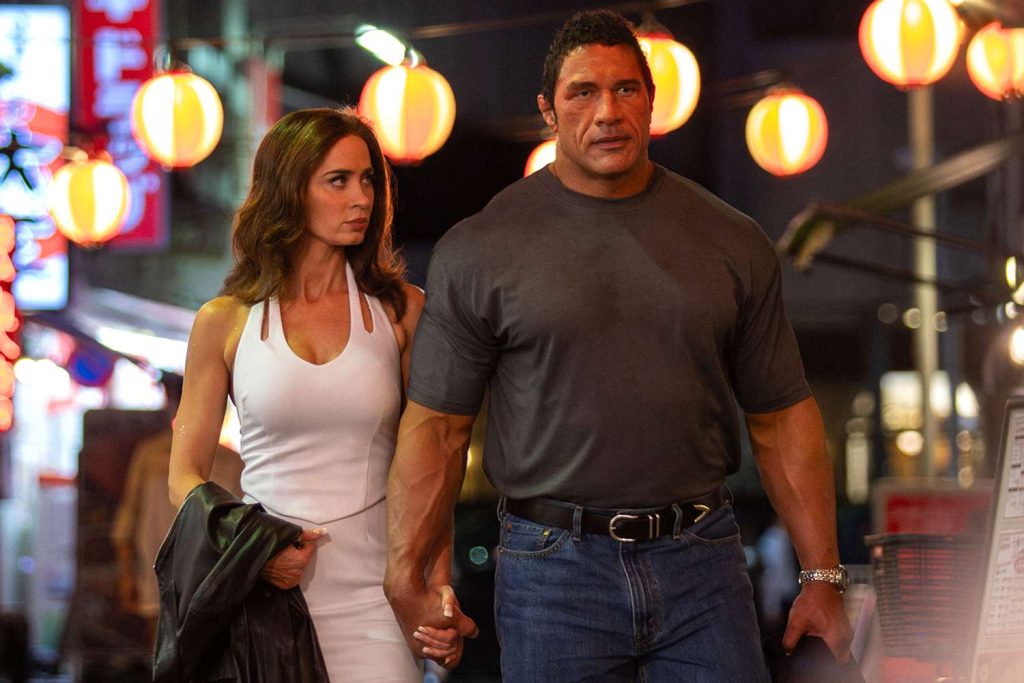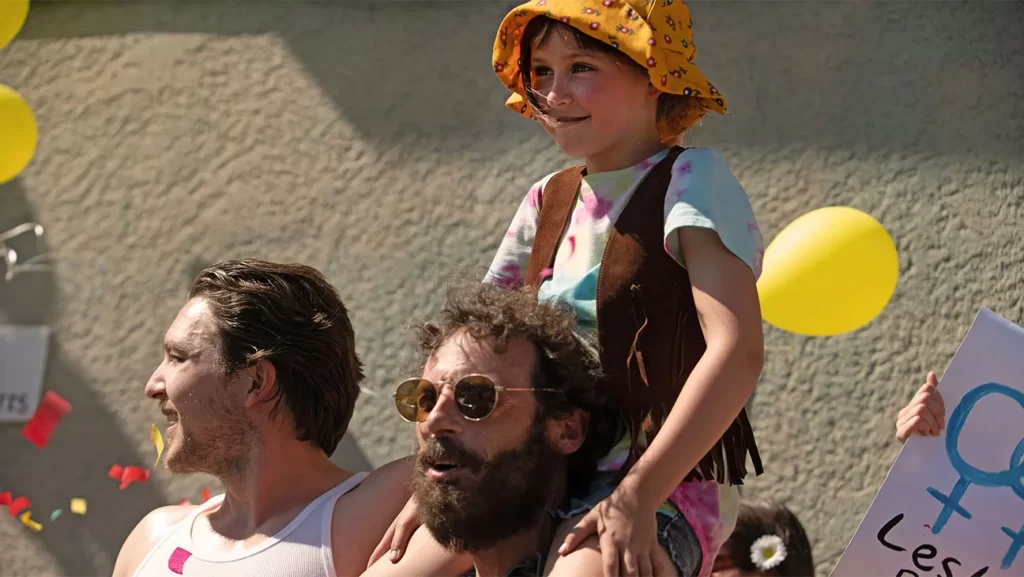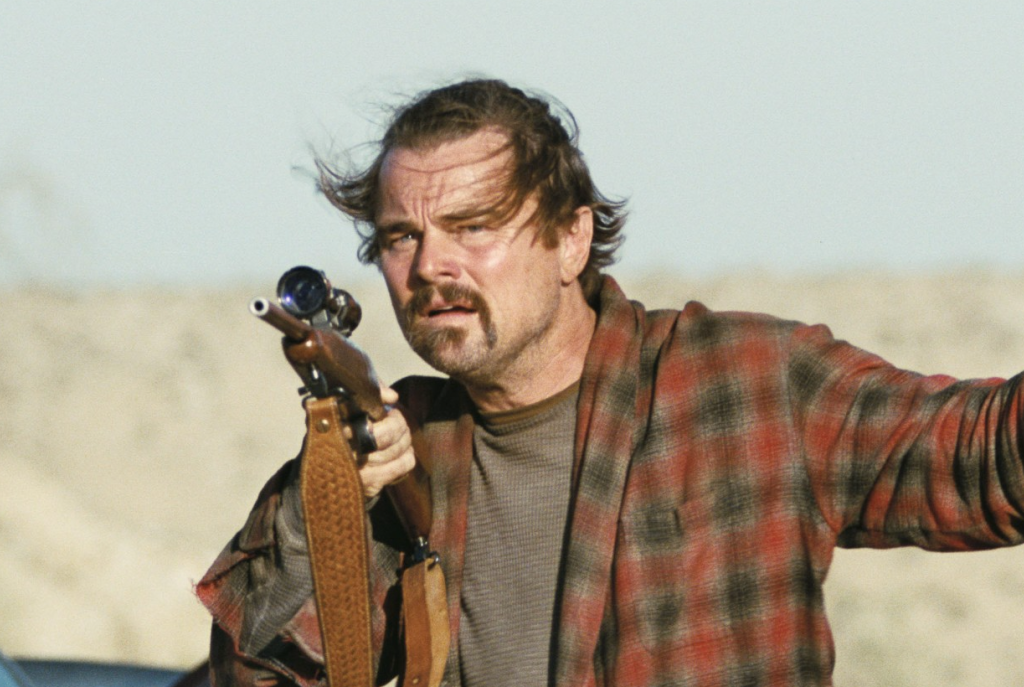It’s important to acknowledge the role that expectation plays in this line of work, so let’s begin by admitting that the notion of a fourth Beverly Hills Cop movie, made for Netflix, thirty years after the (less than stellar) previous installment, filled this viewer with something less than feverish anticipation. Murphy has been threatening a fourth installment for years, usually in one of the lulls that has plagued his career since BHC3 in 1994; the franchise was even floated as a television series back in 2013, shooting a pilot that CBS (CBS!) turned down. Going back to the well this late in the game, a full four decades after the release of Martin Brest’s original film, smelled like abject desperation.
I started to settle in during the opening credit sequence, in which Murphy’s Detroit police detective, Axel Foley, drives around the streets of Motor City to the strains of Glenn Frey’s “The Heat Is On,” aping the opening of the original film; by the time he was navigating a smash-‘em-up car chase with the accompaniment of the Beverly Hills Cop II hit single “Shakedown,” I was all in. As an ‘80s kid, I was clearly being pandered to. I was aware of it, and fine with it.
But a feature film can’t propel itself purely on nostalgia (just look at those new Scream movies), and thankfully, Beverly Hills Cop: Axel F has more on its mind than cosplay. The story: Foley’s estranged daughter Jane (Taylour Paige) lives and works in Beverly Hills as a criminal defense lawyer. Her current client is accused of killing an undercover cop; he says, and she believes, that he was framed to cover for dirty cops in the BHPD. When her life is threatened, Foley heads out west to help his daughter, and call upon some old pals.
Foley-heads (is that a thing?) will be relieved to hear that not only is Judge Reinhold back as Detective Billy Rosewood, but John Ashton and Paul Reiser, who (perhaps wisely) sat out part three, also return. But the primary character of note here is Paige’s Jane, who has much of her father’s doggedness and stubbornness—the latter particularly with regards to maintaining the distance between them. Their icy tension (over their fallout, over her profession) is played with real weight. But as they end up investigating this case together, and have to break through that wall, riffing and improvising off each other in tight situations, it’s fresh and funny.
That’s partly due to Page, who continues to display the wit and charisma that made her so fun to watch in Zola, Jean of the Joneses, and Ma Rainy’s Black Bottom. But it ultimately rests on Murphy, and he’s wonderful. The last thing you might expect from a third Beverly Hills Cop sequel is a real, honest-to-God performance from Murphy; it seems safe to assume he’d just sleep-walk and horse-laugh through it. That’s not the case— he gives the character age, gravitas, and grace, making Foley more than a mere comic construction, but a human being with lived experience. It’s the best work he’s done since Dreamgirls.
Screenwriters Will Beall, Tom Gormican, and Kevin Etten have to thread a difficult needle, balancing the original pictures’ ethos of the cheerfully rule-breaking cop against the current ACAB environment. The dirty cop angle is an unsurprising but effective solution, particularly when said dirty cops are led by Kevin Bacon (another nice little tip to the series’ 80s roots), whose aw-shucks demeanor gives way to murderous grievance-airing. “In the current climate,” he complains, “you have to be so careful about everything you say, everything you do…” The department is so crooked that Reinhold’s Rosewood has resigned over a botched investigation and become a private investigator; Ashton’s Taggart is now the chief of police, and his grizzled and great performance nicely conveys how old-school romanticism over the honor of the job can smoothly comport with a culture of corruption.
Not to suggest that the picture is too socially conscious (don’t worry, anti-wokers!). It’s primarily a delivery system for thrills and laughs—and callbacks, including the now de rigueur “Beverly Hills arrival” montage (with our hero gawking at freaks and hotties from his rinky-dink ride), chases in unexpected vehicles (including one to the Pointer Sisters’ “Neutron Dance”), and even a knowing acknowledgment of Beverly Hills Cop III’s suckiness (looking through his police file and running down his previous visits, Joseph Gordon Levitt’s younger cop notes, “And then ’94, not your finest hour”).

Above all, Axel F has scale—it’s not some rinky-dink TV thing, which is why Netflix’s decision to not even give it the week-or-two-in-a-few-theaters-first treatment is so galling. This is a movie that should be seen on a big screen, with a big crowd of hooting and hollering lunkheads. Australian director Mark Malloy, a commercial director (shades of BHC II’s Tony Scott) making his feature debut, executes the action beats with genuine old-school, ground-level, practical flair, smoothly integrating the laugh lines and finding new ways to make cars smashing into each other into fun. (My favorite: the moment Axel figures out how to get some backup.)
There are things to complain about, sure. Bronson Pinchot’s entrance is immaculately prepared, but his is ultimately a one-joke character on its third telling (Luis Guzman fares much better doing what Pinchot did in the original: popping in for one scene and absolutely taking over the movie). And while yes, I laughed when Foley is asked, of Levitt, “Have you taken him to a strip club yet?”, the script is loaded down with a few too many cutesy sequel wink lines; by the closing shoot-out, we shouldn’t still have characters saying things like “Goddamn Foley, here we go again” and “Jesus Christ, some things never change.”
But look, I cannot even begin to feign subjectivity here. Beverly Hills Cop was one of the first two tapes my dad bought after purchasing our first VCR, and I watched it far more times than an eleven-year-old should. If you love this series, Axel F will hit all your pleasure points. It does everything you want a Beverly Hills Cop movie to do; what makes it special is that it does a couple of older, wiser things besides. In a pair of early scenes with Reiser’s Jeffrey (and yes, that little worm absolutely would’ve ascended to deputy chief), things get unexpectedly heavy, with Foley (and, it is not a stretch to presume, Murphy) weighing his own necessity and mortality. “I know you think you’ve got all the time in the world, Axel,” Jeffrey tells him. “But you don’t.” These fine actors pull those scenes off, lending a sense of weight and purpose to what follows, turning Beverly Hills Cop: Axel F from what we might fear (another Coming 2 America) into what we never expected: a legacy-quel that’s as good as the original.
A-
“Beverly Hills Cop: Axel F” streams on Netflix and opens in limited release on Wednesday.



